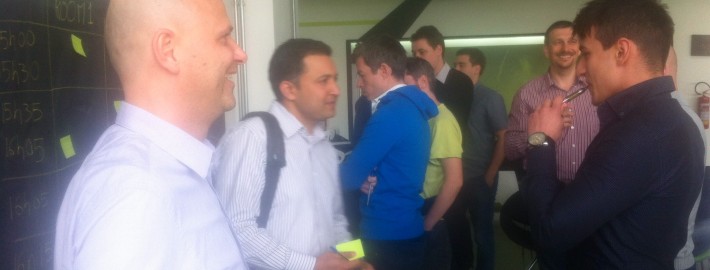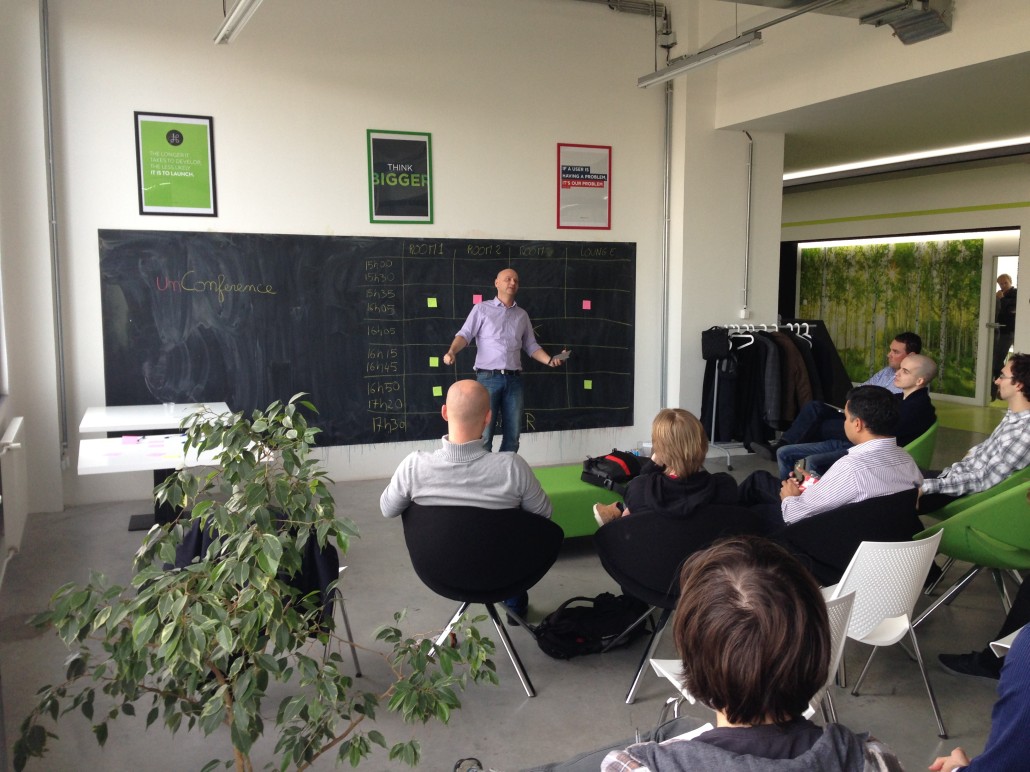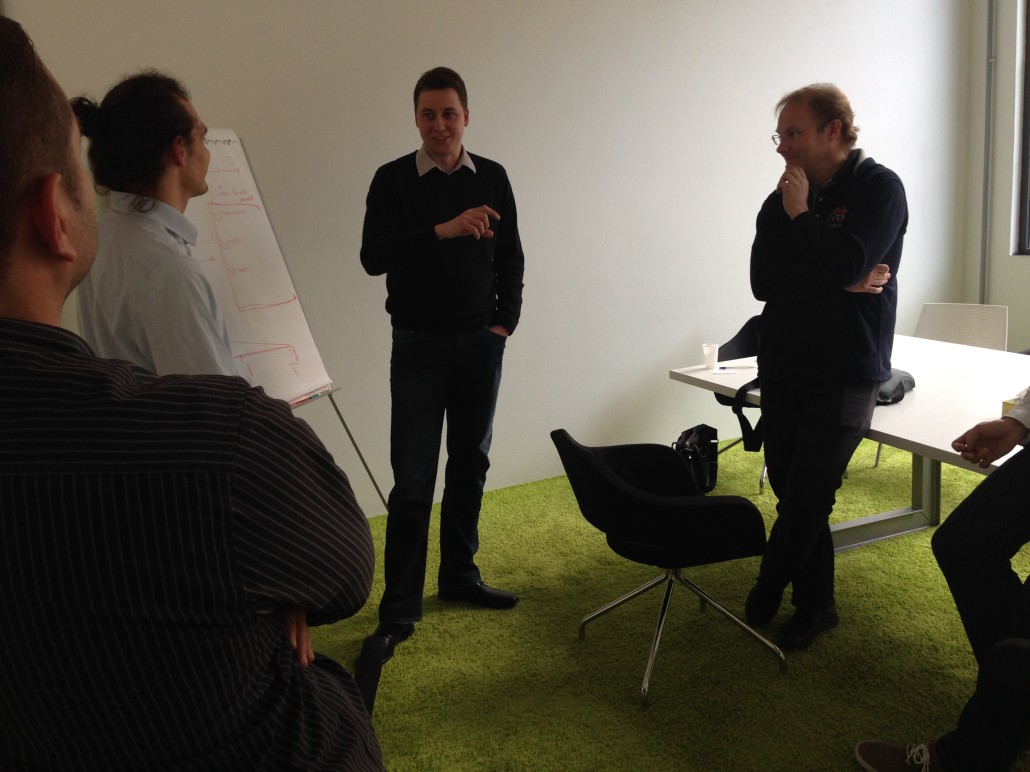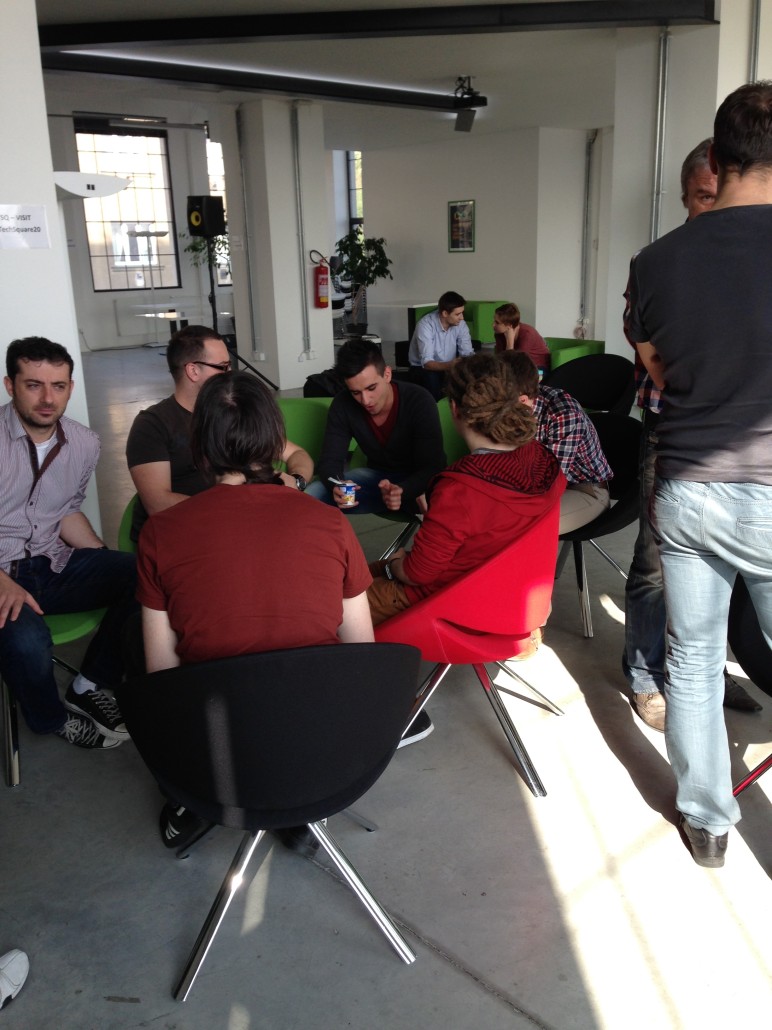The StartupYard *UnConference*
This week, StartupYard hosted and our director Cedric Maloux ran our first “Unconference.” For those as yet unfamiliar with the format, as I was myself, unconferencing is an alternative take on a conference in which the participants help shape the talks and sessions offered.
How it Works
The format is comprised of informal jam sessions in which very active or experienced participants can lead discussions, but everyone is on the same level. It’s great for groups of people who share a good deal of expertise. And, I can report, it has the advantage of not being boring, which for anyone who’s attended a conference can tell you, conferences are always in danger of being.
With about 40 attendees, it was up to anyone present to propose a topic of discussion, either led by their input, or a group discussion. Most of our attendees were mentors or participants in StartupYard, and included people from Seznam, Synot, StudyInterActive, McKinsey & Company, and MediaStudio. The ideas were posted on a blackboard with a timetable and room arrangement. We voted to see which ideas were most popular, and quickly tried to arrange thing so that the most popular sessions were not running concurrently. Talks would be capped at only 30 minutes. A very small window for discussion.
Before we began, every proposed session and its author got about 30 seconds to introduce the concept of the talk, and invite people to join them. It all ran amazingly smoothly, and was really conducive to a friendly atmosphere.
Why it Works
Unexpectedly, I ended up leading a session myself in the first time bracket, on email marketing, a subject close to my heart. My talk was “The 7 Elements of the Perfect Marketing Email.” As the idea had popped into my mind at the last moment, and I had written it into the schedule expecting only a few people to be interested. But about a dozen people arrived to hear me speak about a subject for which I had not prepared any material.
No matter, I forged ahead and proposed a few of the ideas about what I think makes great email marketing. And here’s the best part: because of the informality of the format, and the time constraints, the attendees were quick to prod me with a bunch of questions I had no hope of ever being able to answer completely in the given time. These questions gave me great insights into what they wanted out of my talk. For example, someone asked whether he should send mass emails to his top clients using his personal email address, and if so, how to make sure there were no embarassing gaffes with names and personalization. That’s a question I wouldn’t think to answer.
Clearly, the unconference is a great platform for launching dialogues and connecting with peers who have skill sets you may not even know about. I found myself spending the remainder of the evening reviewing my comments, and cursing myself for not adding *that* piece of information, or *this* anecdote to my talk. In short, it inspired me to flesh out my own ideas on the topic, and the questions honed in on what interested my conference attendees most.
What You Can Get Out of It
A big drag on conferences, it seems to me, is that much of the time, they’re vehicles for a few people to brag to each other, in front of an audience, about how successful they are. They can be cliquey and exclusive, even when they stated goal is to be for networking and expanding horizons. They can also be dreadfully boring, if not run well. Plus, when events are run by and for corporate sponsors, you tend to hear nothing very personal or revealing, nor insightful, just a laundry list of things going on, and impressive sounding job titles and projects. I hosted a conference once, for film makers in the Prague area, in which our first 3 speakers stood up and endeavored to list every single film they had ever worked on or, seemingly, that they had ever seen on a movie store shelf. Mostly, when you ask people to talk about themselves, they have few insights into what makes them really interesting. What’s interesting about us to other people are things we personally don’t even notice or take into account. So a question based format can be disarming, and invigorating.
The really enjoyable part of the unconference, for me, was that the sessions were mostly unscripted, and not supported by slides or presentations of any kind. Presenters, not knowing if they would have a chance to speak at all, or what about if they did, were much more solicitous of input from others, and looked to their colleagues for feedback much earlier in their sessions. There were no monologues, and no “career narratives.” This conference got right to the facts, and right down to business. I suggest you try it.
[ssba]







